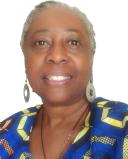Grief
How People Feel the Presence of a Deceased Partner
A therapeutic role, even as sadness endures.
Posted November 1, 2023 Reviewed by Lybi Ma
Key points
- About a third of individuals likely experience at least one "after death communication" in their lifetime.
- Nearly two-thirds of participants wanted to have ongoing perceived interactions with deceased loved ones.
- Overall, experiencing ADCs can have a positive influence on bereaved partners.

It's encouraging to read the findings of a Western culture-based study that can also be interpreted from a non-Western cultural view, such as African-centered psychology. It is deemed normal to experience the presence of a deceased family member or ancestor in many cultures that emphasize a physical realm and a spirit realm as both valid and significant.
After-Death Communication, ADCs, and Grief
A recent research study investigated perceived interactions with the deceased, referred to as ADCs (Penberthy and colleagues, 2023). ADCs are not limited to any one region of the world; they are reported across societies. ADCs have ongoing relevance in our world in which violence from war and conflict, and gun violence. These events often leave families in grief after the loss of partners or spouses and other family members.
Research on the Experience of ADCs
Penberthy and colleagues reported that 30-34 percent of individuals likely experience at least one ADC in their lifetime. Yet there is limited research that has examined the impact of ADCs on persons who have lost their spouse or partner. Even though we expect it to be normal that surviving partners or spouses would be affected by their loved one's death, specific substantial evidence investigating this has been lacking. But now, researchers have addressed the topic of ADCs and have come to positive conclusions about the overall benefits of perceived interactions with deceased partners or spouses.
The Benefits of ADCs
In the research, 70 persons revealed having partner ADCs via responding to an online survey. Not only did 40 percent of the survivors say that their grief recovery was faster, but 42.9 percent stated that the ADC was significantly influential to their grief process. It's important to note that 61 percent of participants wanted to have ongoing perceived interactions with their deceased spouse or partner. The survivors didn't conclusively indicate that having a perceived interaction with their deceased spouse or partner reduced their sadness, yet many (47 percent) felt that having an ADC was beneficial to accepting their loss.
In the non-Western cultural worldview of African-centered psychology, it is believed that the loss of a loved one is a loss of the person in the physical world only; it embraces that the person is still present in the spirit realm. With this cultural worldview, there can be a mind, body, and brain-based emotional experience of positivity and acceptance. It could also explain why 61 percent of individuals in the research reported that they wanted to have continuing ADCs (Penberthy and colleagues, 2023).
Therapeutic Role in Healing
In conclusion, the findings of Penberthy and colleagues suggest ADCs can have a potentially therapeutic role in grief and healing. Yes, sadness will still be a part of the healing process for most. But it is possible that the survivor can heal as they adapt to engagement, which is a spiritual connection and perception of their deceased partner or spouse, even though the physical experience has ceased. Overall it seems that experiencing ADCs can have a positive influence on bereaved partners.
Facebook/LinkedIn image: Bricolage/Shutterstock
References
Penberthy, J. K., St Germain-Sehr, N. R., Grams, G., Burns, M., Lorimer, D., Cooper, C. E., Roe, C. A., Morrison, S., & Elsaesser, E. (2023). Description and impact of encounters with deceased partners or spouses. OMEGA - Journal of Death and Dying, 0(0). https://doi.org/10.1177/00302228231207900


